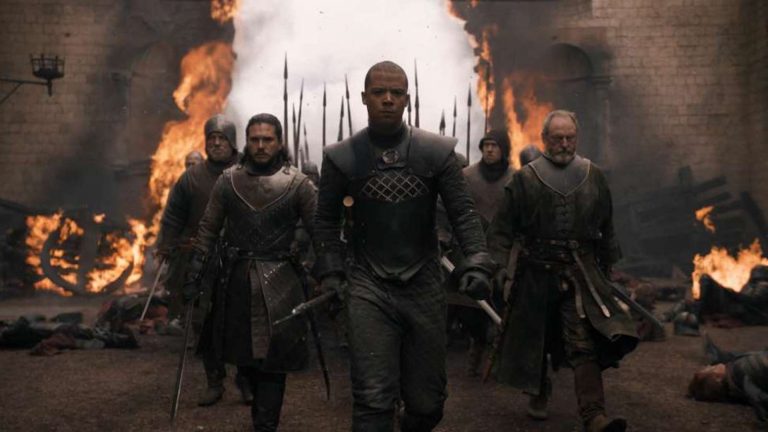I remember sitting in the dark theater watching The Lord of the Rings: The Fellowship of the Ring with my father as a small child. It was a story more grand in scale than any story I had ever been told before. I knew I was getting into something deep however when in the film’s opening prologue, the valiant warrior Isildur, who appeared to be the archetype of the knight in shining armor, decided to keep the cursed ring of doom instead of tossing it into the fires in which it came from, thus damning Middle Earth for centuries onward.
Was the ring’s corrupting influence what caused Isildur to turn to his greedy, destructive nature? Or did Isildur intentionally choose to empower himself instead of being the hero Middle Earth needed? This is a question as old as time—can good men break bad or do bad men wait for opportunities to become evil?
Whether it was Alan Moore’s reinvention of the Batman villain, Joker, in the graphic novel “The Killing Joke” who was just a down on his luck comedian before he encountered that “one bad day,” or cancer stricken Walter White who commits violent crimes in order to, as he sees it, provide for his family, man has always been curious as to how people can choose to embrace their darker demons.
While writing my recent novel “How to Succeed in Politics (and Other Forms of Devil Worship)” I had to ask myself this very question. A dark political thriller-comedy at its heart, I had to dive deep in order to understand how men such as former Alabama Governor George C. Wallace, could start as fair minded progressive judges once supported by the NAACP, and transform into the villain of the civil rights movement we remember him as today. Was Wallace really a hardcore racist, or was he playing the part in order to win with a big voting block? Was he a man who thought the ends justifies the means ultimately, or did he do whatever he needed to do in order to remain in power? These are the questions I had to ask as I looked into the life of America’s most influential political loser of the twentieth century, and questions I still ask myself when I reflect on his roller coaster life.
John Dalberg-Acton, a British Catholic historian and political writer, I believe said it best in regards to this topic; “Power tends to corrupt, and absolute power corrupts absolutely.” All some people need, good intentioned or bad, could perhaps be as Moore showed with the Joker’s “one bad day.”
Thanks to popular culture we’ve seen both sides of this coin—the once kind hearted and innocent Mother of Dragons and liberator of slaves, turning into a murderous fascist who will kill thousands of innocents if it means a grasp on the Iron Throne. The belligerent and self-entitled Frank Underwood, who phones in his duties as a congressman simply going about his days until he finds an opportunity to steal power and become the leader of the free world. The pursuit of power in and of itself isn’t what is destructive, it’s the decisions that are made to achieve and obtain power which are truly evil.
However, there are opportunities in which good men could still be saved. Jedi Knight Anakin Skywalker from Star Wars did descend into evil and become Darth Vader, yet he died (not even a spoiler alert after so many decades) a father defending his son. The same could be seen in the Sam Raimi Spider-Man films, where Peter Parker’s good friend Harry Osborne obtains the Goblin Serum in order to get enhanced powers, turns into a villain, but sacrifices himself to save his friend.
Just because someone may break bad, that does not mean there isn’t a part of them which still clings to their better nature, it’s the decision to choose good or evil which ultimately determines a man’s legacy.
If an evaluation of literature, cinema, and a holistic view of history can shed any truth on this topic, it’s that mankind itself is in a constant state of worry as to whether they will end up on the right or wrong side of history. If Darth Vader is our stereotypical bad guy, does that erase the good he did as Anakin the hero? Did his sacrifice for his son transition him from villain in life to hero in death?
Not all questions have a simple, clearcut answer.
Ultimately man is fluid, man is neither completely evil or completely good, yet the pursuit of power and authority can force us to commit to one side of the proverbial coin or another. If there is one lesson we can glean from all this, it’s that if something has the power to corrupt even the best of us, it should be limited, checked, temporary, and used sparingly, if not abolished entirely for the sake of mankind.














Add comment